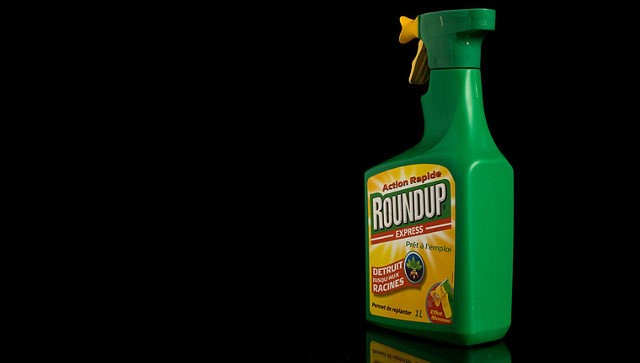Sustainable Pulse has been made aware of a letter sent on December 19 by the Ministers of Environment or Agriculture of France, Belgium, Luxembourg, Slovenia, Malta and Greece to the European Commission calling for a new study on the carcinogenic potential of glyphosate and also a study to identify alternatives to the World’s most used herbicide.

The letter was sent to the European Commission by Nicolas Hulot, Minister for ecologic and inclusive transition (France), Denis Ducarme, Federal Minister for Middle classes, SMEs, Agriculture and Social inclusion (Belgium) Carole Dieschbourg, Minister for the Environment (Luxemburg) Josè A. Herrera, Minister for the Environment (Malta) Dejan Zidan, Minister for Agriculture (Slovenia) and Evangelos Apostolo, Minister of Agriculture (Greece).
The letter states;
“The renewal of the authorization of glyphosate for 5 years was voted during the appeal committee of November 27th. While taking note of this vote, we, Ministers of Environment or Agriculture of France, Belgium, Luxembourg, Slovenia, Malta and Greece underline our concerns about the risks associated with the use of products containing this substance. As a matter of fact, a European citizen’s initiative signed by more than one million people called for a ban of this substance.
The European Parliament has expressed its support for the adoption of necessary measures to phase out the active substance glyphosate in the European Union by 15 December 2022 at the latest. The European Parliament also asked for the extension of specific restrictions of use of glyphosate for weeding and pre-harvest desiccation. We wish to recall that our countries are in favor of the ban of these uses, which are the main sources of residues that can be found in food.
THE GLYPHOSATE BOX
New: Hair Testing – Find Out Your Long-Term Exposure to Pesticides
Test Yourself for Glyphosate and Join New Glyphosate Biobank
In this context, we invite the European Commission to accompany the decision of the renewal with measures intended to limit the risks and to prepare the exit plan for glyphosate by accompanying farmers. This should result in:
1: Carrying out a study in order to identify and make available for all actors the possible alternatives (chemical, mechanical or biological) to the main agricultural uses of glyphosate, the necessary conditions and the methods of implementation, including the necessary adaptations and the induced evolution of practices at the level of farms and sectors.
2: Carrying out a new study conducted by the European agencies in cooperation with the national agencies of voluntary Member States and IARC / WHO regarding the carcinogenic nature of the active substance glyphosate, as well as obtaining and examining additional data available;
3: Launching a reform of the European chemical assessment framework with the aim of enhancing its transparency, as announced by the European Commission on December 12th, and independence ;
4: Simplifying the frame governing the comparative evaluation to facilitate the substitution of substances during the examination of applications for authorization for placing on the market and the development of alternatives to chemicals ;
5: Strengthening research on the consequences of population exposure to chemical substances in order to work on a non-toxic European environment.
We as member states, maintain our commitment to encourage the development and implementation of integrated pesticides management and of alternative approaches or techniques in order to reduce dependency on the use of pesticides. Finally, we reaffirm our willingness to develop alternatives to the use of this substance by accompanying farmers in this process, to ensure a short-term exit of glyphosate and invite Member States that wish to associate themselves to this initiative to join us in a working group that France will put in place.



















We are a grassroots village based network of Small Scale Farmers SSFs and part of a similar larger regional network for East Central and South Africa Countries ESAFF.
Born out of the UN World Summit on Sustainable Development which was held in Johannesburg South Africa in August 2002.
We bring together SSFs through empowering them with capacities to articulate issues affecting them namely domestic and international policies, domestic and global market access and availability of SSFs friendly credit. This is in our efforts to fight to eliminate INEQUALITIES and eradicate POVERTY as we participate in implementation of the UN SUSTAINABLE DEVELOPMENT GOALS SDGs especially for 1 & 2..
Over the past few years we have participate in WTO, UNCTAD, TICAD, AGA, EPAS, AU DELIBERATIONS, COMESA, NEPAD, CAADP, ECOWAS, SADEC, EAC INTEGRATION PROCESS AND OUR KENYAN GOVERNMENT DEVOLUTION SYSTEMS.
Also we are the Facilitator for EAST AFRICA CIVIL SOCIETY MECHANISM CSM FOR FOOD SECURITY IN FAO and also MEMBER OF THE UNITED NATION GENERAL ASSEMBLY in THE COMMITTEE ON FOOD SECURITY CFS.
However since SSFs is rain fed we ve embarked on ambitious RUNOFF RAINWATER HARVESTING TECHNOLOGIES especially in the ARID and SEMI ARID AREAS of the Eastern Kenya. This will enable us to mitigate and adopt effects of Climate Change mostly droughts and floods.
However we are constrained by the lack of various inadequacies for which we are seeking PARTNERSHIP with likeminded organizations so that we can benefit from the capacities and resources available with them especially the techno/commercial ones.
Hence we request you to send us the details of the procedures to be followed for such engagement
We are working to show how dangerous Roundup is.
We are agricultural consultants (organic) in Texas.